Various changes in rules and regulations will impact the charity sector in the coming months. This handy guide outlines the key issues for charities to keep up to date with sector developments.
Employment Law – IR35 Update
From April 2020, the off payroll working rules which have applied to the public sector since 2017 are extended to the private sector, including charities. Under the new rules, responsibility for determining the employment status of self-employed contractors working through personal service companies, shifts from the contractor to the organisation employing the contractor. It applies for all services provided by the contractor after 6 April 2020. The government’s intention is to ensure that an individual who works like an employee but through their own limited company pays broadly the same tax and national insurance as those who are employed directly. Therefore, if a contractor is determined to be an employee, tax and national insurance must be deducted from the fee payable to the contractor and paid over to HMRC.
Note: Definition of medium and large company is when two of the following conditions are met:
- Turnover £10.2m (Exclude voluntary Income)
- Balance Sheet £5.1m
- Employees >50
Further details can be found here.
Employment Allowance
From April 2020, the rules relating to claiming employment allowance will change. Under the new rules, the deduction of up to £3,000 from the secondary class I national insurance liability will need to be claimed each year and will only be allowable where:
- The total secondary class 1 contributions in the previous tax year did not exceed £100,000.
- The total ‘state aid’ in the previous 3 years did not exceed €200,000
Charity Secretarial – 5th Money Laundering Directive
The government has confirmed that charitable Trusts will be exempt from the requirement for trusts to register with the Trust Registration Service. There had been concern that charities would be affected by the registration requirements under the 5th Money Laundering Directive.
VAT on sponsorship – Notice 701/1 Updated
Notice 701/1 (para 5.9.6) has been updated to provide further clarification on when a sponsorship receipt from a commercial company can be considered to be partly a donation. It particularly addresses the situations where a commercial company may sponsor a charity, providing a percentage of sales to the charity. In this case, the commercial benefit to the commercial company, if any, can be valued with the balance of receipts being considered a donation.
VAT – Partial Exemption and Capital Goods Scheme
HMRC are carrying out a review of partial exemption and the capital goods scheme with a view to simplifying the rules. In relation to partial exemption one of the proposals is to end the requirement for special methods to be approved by HMRC and replace this requirement with standard sectoral methods which would not need prior approval. Another proposal is to increase the ‘de minimis’ levels below which exempt income can be ignored for VAT recovery purposes.
In relation to the capital goods scheme, it is proposed that the thresholds above which property and other assets are included in the capital goods scheme could be increased as it is recognised that compliance is very time consuming.
VAT – Zero-rating electronic newspapers
In a case brought by News Corp, the upper VAT tribunal has published its judgement that electronic newspapers should be zero-rated on the same basis as hard copy newspapers. It should be noted that HMRC may appeal this case. A key issue is whether the case could also impact other electronic publications such as newsletters and periodicals. At this stage the implications of the judgement are uncertain. In due course, however, it could potentially have a big impact for some charities which make on-line publications available to members.
Reporting serious incidents to the Charity Commission
The Charity Commission raised concerns, in 2018, that there was significant and systemic underreporting of serious incidents. As a result it has issued updated guidance on the requirement to report serious incidents to them. It states that an incident should be reported if it results in significant:
Harm to people who come into contact with the charity through its work (including beneficiaries)
Loss of the charity’s money or other assets
Damage to the charity’s property
Harm to the charity’s work or reputation
The guidance provides a table of common examples of incidents which should be reported.
Safeguarding and Protecting People
The Charity Commission has recently issued updated guidance on the systems and controls which charities should have in place to ensure staff, volunteers and beneficiaries are adequately protected. A key element of the guidance is to ensure that those receiving assistance from the charity are also included in the charity’s safeguarding procedures.
The guidance includes advice on the due diligence which should be carried out when making grants to other charities. The advice includes:
- Ensuring the recipient charity is properly registered and a suitable organisation
- Ensuring the terms and conditions of the grant are clearly set out
- Ensuring monitoring and reporting arrangements are in place
Grants can be made to non-charitable organisations but additional controls will be required to ensure funds are only used for charitable purposes.
Cyber Security: Small Charity Guide
This guide has been produced by the National Cyber Security Centre. It is a simple guide with tips on how to keep electronic devices and data safe. It covers:
- Protection against Malware (including viruses)
- Protection against phishing attacks
- Use of passwords
- Backing up data
- Protecting smartphones and tablets
A copy of the code can be obtained here.
Charity Governance Code: Small Charities
The charity governance code for small charities is now supported by a new toolkit produced by the NCVO which enables charities to carry out an assessment of how well they comply with the code.
The governance code headings are:
- Organisational purpose
- Leadership
- Integrity
- Decision-making, risk and control
- Board effectiveness
- Diversity
- Openness and accountability
Financial Reporting: The Charity SORP
The governance arrangements associated with revising and developing the SORP have been reviewed. The key recommendations, which are set out in a report entitled: Guiding the Development of the Charities SORP, are that:
- The Accounts should be more focused on the stakeholders and other users
- The Accounts of smaller charities should be simplified
- The Committee making changes to the SORP should be more representative.
Charity Commission Annual Return
The Charity Commission has added additional questions to the Annual Return. These additional questions include:
- Whether the charity works with a professional fundraiser and the nature of the agreement
- Whether the charity has received funding from, or has contracts with, central or local government and the value of funding received.
- Whether the charity has received income from overseas countries and the amounts from each country.
- Whether the charity remits funds overseas and the controls in place over overseas payments.
- Details of total salaries to higher paid employees
The full list of questions can be viewed here
For more details on any of these emerging issues, contact our Not for Profit Team.
Get in touch or request a call back:
Call 0330 223 6400 or complete the form to make an enquiry or request a call back (* indicates a mandatory field).



